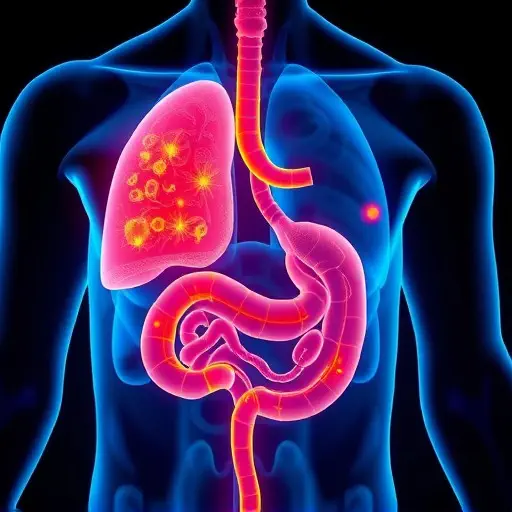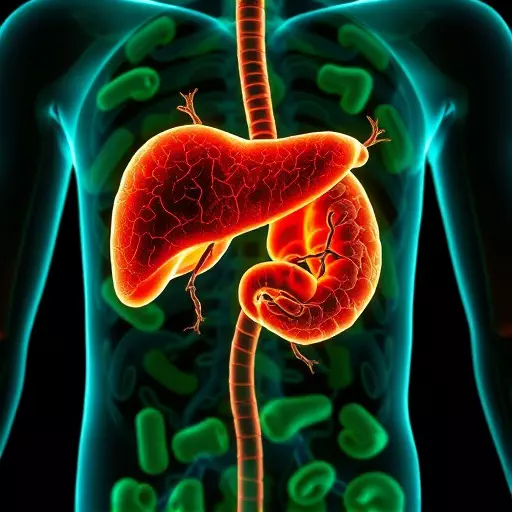In Flint-Traverse City and Bay City, healthcare professionals rely on comprehensive lab work, including urine protein-to-creatinine ratios (UPCR), to assess kidney health. To gain a holistic view of wellness, non-invasive tests for liver fibrosis and functional stool analysis are integrated with UPCR. These advanced tools enable accurate diagnoses and personalized treatment plans by providing insights into digestive health, gut microbiota composition, and nutrient absorption, thereby enhancing patient care in these communities.
In the realm of healthcare, interpreting key biomarkers offers invaluable insights into our body’s functions. Among these, the urine protein-to-creatinine ratio (UPCR) emerges as a powerful indicator of kidney health in Flint-Traverse City and Bay City. This article delves into the significance of UPCR, exploring its role in detecting kidney disease and how it complements non-invasive lab tests for evaluating liver fibrosis and functional stool analysis for digestive health insights. By integrating these diverse lab results, healthcare professionals can provide holistic patient care tailored to individual needs.
- Understanding Urine Protein-to-Creatinine Ratio: A Key Indicator for Kidney Health in Flint-Traverse City and Bay City
- The Role of Non-Invasive Lab Tests in Evaluating Liver Fibrosis: Beyond Blood Work
- Functional Stool Analysis: Unlocking Digestive Health Insights for Comprehensive Well-being
- Integrating Lab Results for Holistic Patient Care: A Guide for Healthcare Professionals
Understanding Urine Protein-to-Creatinine Ratio: A Key Indicator for Kidney Health in Flint-Traverse City and Bay City

In Flint-Traverse City and Bay City, understanding urine protein-to-creatinine ratio (UPCR) is crucial for evaluating kidney health. This simple lab work measures the amount of protein in relation to creatinine, a waste product filtered by the kidneys. A high UPCR indicates possible kidney damage or disease, making it an essential tool in early detection and management. By analyzing this ratio, healthcare professionals can gain valuable insights into renal function and make informed decisions regarding patient care.
Moreover, while UPCR is a key indicator for kidney health, it’s important to note that evaluating liver fibrosis with non-invasive lab tests and exploring functional stool analysis for digestive health insights can complement these efforts. These additional diagnostic tools provide a comprehensive approach to understanding overall wellness, especially in regions like Flint-Traverse City and Bay City where proactive healthcare is essential.
The Role of Non-Invasive Lab Tests in Evaluating Liver Fibrosis: Beyond Blood Work

In today’s digital era, evaluating liver fibrosis extends beyond traditional blood work in Flint- Traverse City and Bay City. Non-invasive lab tests are emerging as valuable tools to gain deeper insights into digestive health and its connection to liver condition. One such innovative approach is functional stool analysis, which goes beyond measuring protein levels in urine (as done for kidney disease assessments) to scrutinize the gut’s functionality and potential markers of liver fibrosis.
By examining stool samples, healthcare professionals can uncover hidden clues about the digestive system’s role in liver health. This comprehensive evaluation includes looking at various parameters such as gut microbiota composition, nutrient absorption, and the presence of inflammation or damage within the gastrointestinal tract. Integrating these non-invasive lab tests alongside conventional blood work offers a holistic picture, enabling more accurate diagnosis and tailored treatment plans for patients with suspected liver fibrosis in communities like Flint-Traverse City and Bay City.
Functional Stool Analysis: Unlocking Digestive Health Insights for Comprehensive Well-being

Functional Stool Analysis is a valuable tool in evaluating digestive health and overall well-being, especially in regions like Flint-Traverse City and Bay City where access to comprehensive lab work is essential. This non-invasive method provides insights into gut functionality and can help identify potential issues that might be overlooked through traditional blood tests alone. By examining stool samples, healthcare professionals can assess liver fibrosis, a condition often difficult to diagnose without invasive procedures.
This approach offers a window into the body’s digestive process, allowing for personalized treatment plans. It is particularly beneficial in managing chronic gastrointestinal disorders and understanding nutrient absorption. With advancements in lab technology, individuals can now access detailed information about their digestive tract health, promoting proactive care and improved quality of life.
Integrating Lab Results for Holistic Patient Care: A Guide for Healthcare Professionals

In the comprehensive care of patients, especially those with kidney disease, integrating various lab results is key. Beyond urine protein-to-creatinine ratios, healthcare professionals in Flint-Traverse City and Bay City can leverage non-invasive lab tests for a holistic understanding. Evaluating liver fibrosis through specialized tests offers valuable insights into a patient’s overall health status. For instance, functional stool analysis provides crucial data on digestive health, complementing renal and hepatic assessments. This multi-faceted approach ensures that treatment plans are informed by a complete picture of the patient’s condition, enabling more effective management strategies tailored to individual needs.
